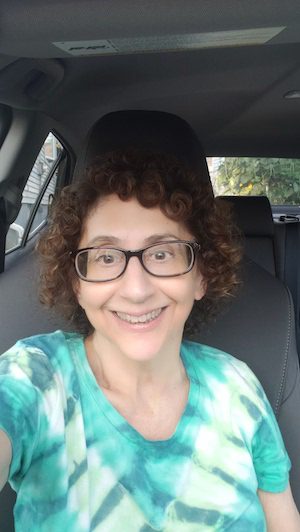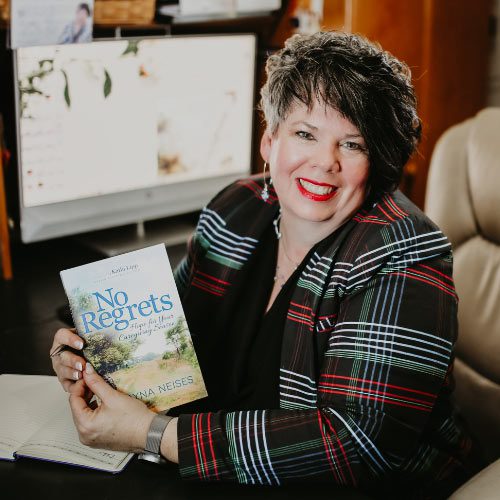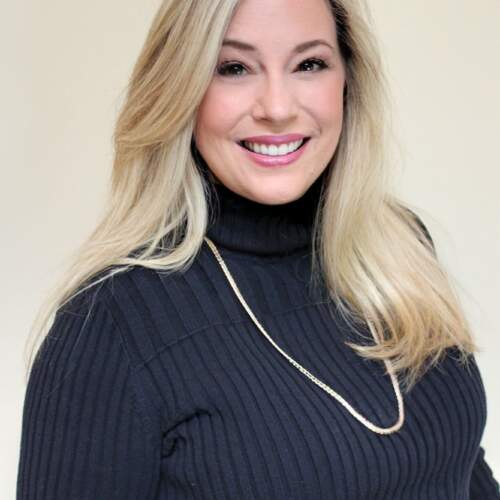Caregiver: Heal Thyself
Photo by Getty Images
There were signs and omens long before we fully realized my mother’s absent-mindedness had reached a dangerous state. There was the time she forgot to turn off the burner on the gas range for a whole day. Or the time she took her car to the closest grocery and had to be rescued an hour later, lost and sobbing hysterically.
Clearly, my mother could not continue to live alone safely. Something had to be done. My youngest brother stepped up. As a self-employed Realtor, his time was the most flexible. He moved into my mother’s house, took her to doctor’s appointments, hid the car keys, and did his best to lower her spikes of confusion and Anxiety, until the day when he and two other siblings arranged her move to an assisted living facility.
Like millions of Americans, my brother was an unpaid caregiver – and not just unpaid, but at a considerable financial sacrifice, as attending to my mother left him little time for his business. That, too, is not uncommon.
In the U.S. today, 53 million Americans, a majority of them age 50 and older, are providing care to a middle-aged or older adult family member. Data from an AARP survey estimates these family caregivers provide 36 billion hours of unpaid services worth about $600 billion.
The Hidden Danger
But caregivers face a serious problem, larger than unpaid labor or financial sacrifice, and the more dangerous because it isn’t as obvious to them: Many caregivers sacrifice their own health while attending to the health of another. Caregivers often are unaware that the Stress of Caregiving can damage their own mental and physical well-being. For caregivers who are also balancing a job and a family, the stresses are even greater. Untreated stress can worsen chronic conditions, weaken the immune system, lead to weight fluctuations, and chip away at Mental Health.
This was particularly true during the Covid-19 pandemic. A survey by Archangels, a caregiver support organization, found that among adults who were both parents and unpaid caregivers for adults, 85% experienced adverse mental health symptoms (Depression, anxiety, Sleep loss) during Covid-19, and 52% reported recent suicidal thoughts.
Asking for Help
Caregivers as a group are reluctant to seek help. It doesn’t take a psychic to see why. The kind of person who volunteers to help a family member is not the kind of person to put their own needs first. They are the people who respond when others call for help – not the people who seek help for themselves.
Any symptom they might feel will seem minor in comparison to Aunt Millie’s serious pain and discomfort. They may also worry that if they get sick, who will be there for Aunt Millie?
The problem with that level of altruism and self-sacrifice is – and not to alarm anybody, but – it is not uncommon for caregivers to die before the person they are caring for, simply because they ignored their own deteriorating health.
With that in mind, take note of common symptoms that suggest stress is gaining the upper hand:
Feeling isolated or alone
Feeling overwhelmed
Sleeping too much or too little
Gaining or losing weight
Feeling tired most of the time
Becoming easily angered or irritated
Turning to unhealthy coping behaviors like smoking or excessive drinking
Feeling sad often
Losing interest in activities you once enjoyed
Self-Care
Caregivers can take care of their own health by following small, regular habits: Staying hydrated, eating healthy foods, getting enough sleep, and staying active. A regular mindfulness practice, such as Meditation, helps relieve stress levels. The main thing is to reserve time to take care of the self, so that the caregiver has the strength and balance to give care to another.
Where are the Helpers?
Despite how it feels at times, caregivers are never really alone. Several national organizations have created valuable resources to help caregivers willing to seek it.
The Caregiver Action Network offers an online self-care guide, a caregiver toolbox, and an online forum where caregivers can exchange stories and offer support for one another. The National Council on Aging offers a resource hub with information and links to other organizations. The U.S. Administration on Aging maintains Caregiver Corner, which provides information about and links to transportation services, home health care, low-cost legal help, Medicare, and more useful services.
Caregiving is an act of self-sacrifice. But being a strong, reliable caregiver does not mean sacrificing the caregiver’s own physical and mental health.
What’s Your Joywork?
Have you found a project or a new venture in Retirement that satisfies your needs? I’d love to hear more about it! Contact me at don@donakchin.com.


























